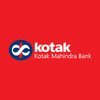


i
Filter interviews by
Commonwealth Bank of Australia, India Teradata Developer Interview Questions and Answers
Commonwealth Bank of Australia, India Teradata Developer Interview Experiences
1 interview found
I applied via Approached by Company and was interviewed in Oct 2022. There were 3 interview rounds.

(2 Questions)
- Q1. Tell me about your project. How would you describe yourself
- Q2. Questions on performance tuning
(1 Question)
- Q1. What are your strengths and weakness
Interview Preparation Tips
Top trending discussions






Interview questions from similar companies

I applied via Approached by Company and was interviewed before Jul 2023. There were 2 interview rounds.
There was a small test which included few mcqs and one sql coding question. It was about 30 mins. It was fairly easy if you have knowledge on SQL.
(2 Questions)
- Q1. What is rollback and commit?
- Ans.
Rollback and commit are database transactions used to manage changes made to the database.
Rollback is used to undo changes made in a transaction and restore the database to its previous state.
Commit is used to save the changes made in a transaction permanently to the database.
Rollback is typically used when an error occurs during a transaction, while commit is used when the transaction is successful.
Example: If a trans...
- Q2. What are Transactions
- Ans.
Transactions are a set of operations that are executed as a single unit of work, ensuring data integrity and consistency.
Transactions help maintain data integrity by ensuring all operations within the transaction are completed successfully or rolled back if any operation fails.
Transactions follow the ACID properties - Atomicity, Consistency, Isolation, and Durability.
Examples of transactions include transferring funds ...

I applied via Recruitment Consulltant and was interviewed in May 2022. There were 3 interview rounds.

(1 Question)
- Q1. Questions related to performance tuning, User defined exception in function, Record, Triggers
(1 Question)
- Q1. Deep discussion about Database migration, team management
Interview Preparation Tips

Oracle Database Administrator Interview Questions & Answers
Fidelity Investmentsposted on 15 Sep 2021
I applied via Naukri.com and was interviewed in Aug 2021. There were 5 interview rounds.
Interview Questionnaire
1 Question
- Q1. Data pump, golden gate and performs tuning
Interview Preparation Tips

Interview Questionnaire
7 Questions
- Q1. 1. Brief about yourself. Roles and responsibilites
- Q2. Types of transformations you have worked on
- Ans.
I have worked on various types of transformations including Aggregator, Expression, Filter, Joiner, Lookup, Router, and Sorter.
Aggregator transformation for performing calculations on groups of data
Expression transformation for performing calculations and manipulating data
Filter transformation for filtering out unwanted data
Joiner transformation for joining data from multiple sources
Lookup transformation for retrieving...
- Q3. Is sorter active?
- Ans.
Sorter can be active or inactive depending on the configuration.
Sorter transformation can be configured to be active or passive.
If active, it sorts the data based on specified criteria.
If passive, it passes the data through without sorting.
Sorter can be used to remove duplicates from data.
Sorter can also be used to sort data in ascending or descending order.
- Q4. What kind of transformation is update strategy? explain
- Ans.
Update strategy is a transformation used to flag rows for insert, update, delete or reject.
Update strategy is used to control the flow of data in a mapping.
It is used to flag rows for insert, update, delete or reject.
It can be used to update a target table based on a source table.
It can be used to insert new rows into a target table.
It can be used to delete rows from a target table.
It can be used to reject rows that do
- Q5. Types of caches. explain
- Ans.
Caches are temporary storage areas that hold frequently accessed data for quick access.
There are several types of caches including CPU cache, disk cache, browser cache, and DNS cache.
CPU cache stores frequently accessed data from RAM for faster access.
Disk cache stores frequently accessed data from hard disk for faster access.
Browser cache stores frequently accessed web pages, images, and other resources for faster loa...
- Q6. If we dont specify anything in group by aggregator what will happen
- Ans.
If we don't specify anything in group by aggregator, it will return the result without any grouping.
The result will contain all the rows from the input without any aggregation.
The output will have the same number of rows as the input.
No grouping will be performed on any column.
The output will be similar to a select statement without a group by clause.
- Q7. Performance tuning
Skills evaluated in this interview
Commonwealth Bank of Australia, India Interview FAQs
Tell us how to improve this page.
Commonwealth Bank of Australia, India Interviews By Designations
- Commonwealth Bank of Australia, India Senior Software Engineer Interview Questions
- Commonwealth Bank of Australia, India Analyst Interview Questions
- Commonwealth Bank of Australia, India Senior Test Engineer Interview Questions
- Commonwealth Bank of Australia, India Software Engineer Interview Questions
- Commonwealth Bank of Australia, India Data Engineer Interview Questions
- Commonwealth Bank of Australia, India Quality Engineer Interview Questions
- Commonwealth Bank of Australia, India Senior Manager Interview Questions
- Commonwealth Bank of Australia, India Test Engineer Interview Questions
- Show more
Interview Questions for Popular Designations
- Oracle Database Administrator Interview Questions
- ETL Developer Interview Questions
- Database Developer Interview Questions
- SQL Database Administrator Interview Questions
- MS SQL DBA Interview Questions
- Informatica Developer Interview Questions
- Lead Data Engineer Interview Questions
- Data Architect Interview Questions
- Show more



Interview Questions from Similar Companies
|
Senior Analyst
250
salaries
| ₹8.2 L/yr - ₹30.2 L/yr |
|
Senior Associate
221
salaries
| ₹5.4 L/yr - ₹12 L/yr |
|
Senior Software Engineer
209
salaries
| ₹15 L/yr - ₹50.1 L/yr |
|
Analyst
196
salaries
| ₹5 L/yr - ₹20 L/yr |
|
Software Engineer
186
salaries
| ₹11.9 L/yr - ₹35.6 L/yr |

HDFC Bank

ICICI Bank

State Bank of India

Axis Bank
- Home >
- Interviews >
- Commonwealth Bank of Australia, India Interview Questions >
- Commonwealth Bank of Australia, India Teradata Developer Interview Questions











